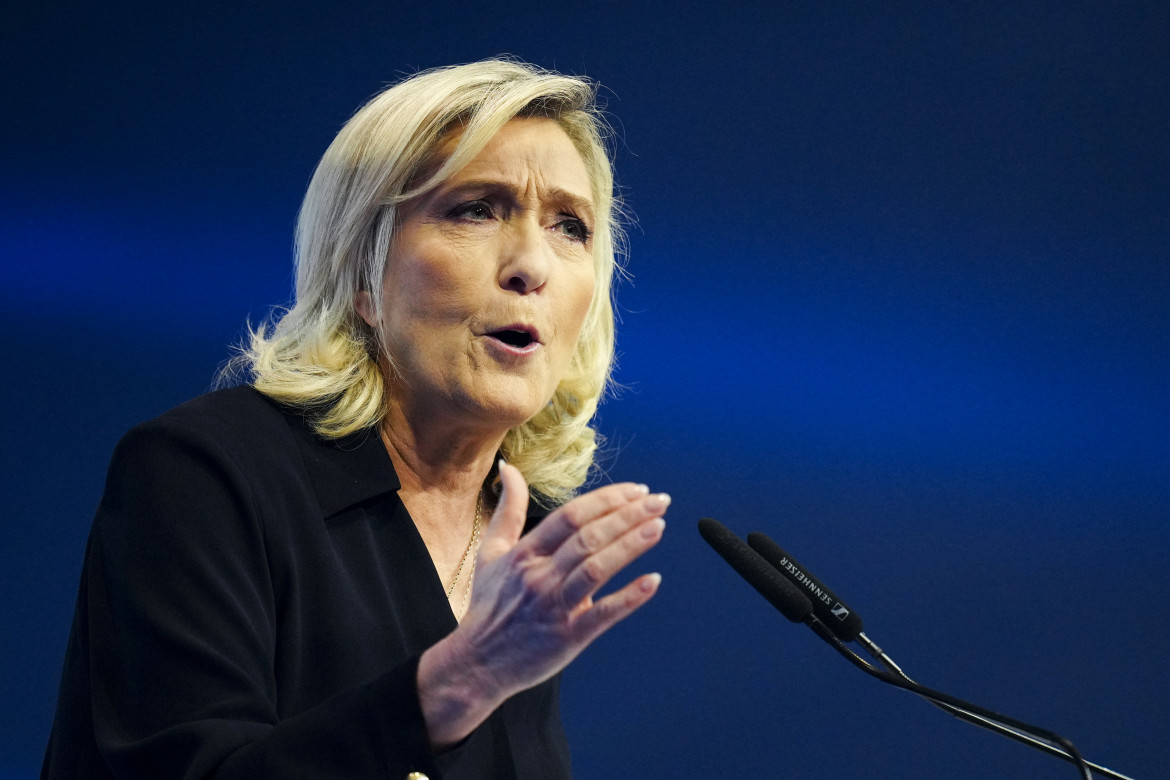Analysis
Maneuvering is underway in EU Parliament ahead of expected windfall for far right
Far-right politicians are already falling to hubris. In November, AfD began to tout “re-migration,” that is, deporting legal migrants and even foreign nationals who have acquired German nationality.

The far right has not yet won the European elections, but with little more than two weeks to go before the vote, it is attracting all the attention, based on polls showing a surge that could bring the number of far-right MEPs to a quarter of the European Parliament or more. Their intention is to hollow out the EU from within, with the inversion of the hierarchy of law: an à la carte Europe where national laws will seek to erode the pre-eminence of European ones, depending on whatever is more convenient for each member state at the time.
The election of the next Commission presidency may depend on the pro-NATO far-right: current president Ursula von der Leyen has not ruled out alliances that could break the currently dominant PPE-S&D-Liberals pact.
Fear leads to strategic errors: on Wednesday, on France’s public network France2 – despite a strike by all radio and TV networks against a controversial reform of the public audiovisual sector – the prime minister, Gabriel Attal, was scheduled to debate the National Rally’s top candidate, Jordan Bardella (the strike is bypassed because the broadcast is run by a private agency). But Attal is not even running in the elections, and only got involved as a desperate move: Macron’s party is losing ground, at 15 percent against more than 30 percent for the NR, and is in danger of finishing third, behind Raphaël Glucksmann’s PS. The existence of this debate is already a victory for the far right: the NR is officially recognized as the government’s main opponent and the Attal-Bardella clash between top figures already foreshadows the battle that Le Pen’s heirs are most focused on, the 2027 presidential election.
However, the European right is already falling prey to hubris ahead of the leap forward predicted by the polls. The large-scale maneuvering has begun, and great confusion reigns at the moment. The starting point is the two groups into which the far-right parties in the European Parliament are divided: Identity and Democracy (ID) and European Conservatives and Reformists (ECR), which roughly correspond to the extreme right (ID) and hard right (ECR). There are already agreements between the two groups at the local level: in Italy, for example, Fratelli d’Italia (ECR) is in government with the Lega (ID). Last week, the Spanish Vox (ECR) organized a meeting in Madrid where it put itself forward as a mediator: it invited Marine Le Pen (ID), at the same time as the National Rally was distancing itself from the AfD (Id), because of statements made by its leading candidate, Maximilien Krah.
Le Pen said that RN would no longer be in the same group as the AfD, and the Danish far right followed suit (even Salvini had some vague words to this effect). Krah, against whom two judicial investigations are under way in Germany, was sidelined by the AfD on Tuesday and will no longer take part in rallies these two weeks, after his statement that the members of the SS were “not all criminals.”
But Krah is not the only problem. In November, AfD began to tout “re-migration,” that is, deporting legal migrants and even foreign nationals who have acquired German nationality. Austria’s FPÖ (ID), in first place according to the polls, is also advocating for the same position and remains very close to AfD. Will the ID end up cleaning house, giving up a considerable number of MPs? Numbers matter, and to have a group you need MEPs from at least 7 countries. Is it really plausible that the French NR will end up in the group of “non-members” due to “ethical” considerations? Or will there be a reshuffling among the two groups? Le Pen has said there are “points in common” between her and Meloni, despite cold relations between the two so far.
Large-scale maneuvering is also underway within ECR, the group that has already broken through the cordon sanitaire and is aiming for committee chairmanships. The Polish PiS has already softened its criticisms of Orbán and his Hungarian Fidesz, which is now in the “non-member” section after being expelled from the EPP in 2021 and might join ECR (while he is also being courted by ID).
Meanwhile, there are overtures toward the far right among the EPP. And Renew is in the midst of a storm: group leader Valérie Hayer has said she will not stay in the group together with the Dutch liberals, who have agreed to form a government with Geert Wilders’ PVV. The Swedish liberals, who have accepted the support of the far-right in the current government, could also be excluded from Renew.
Originally published at https://ilmanifesto.it/grandi-manovre-in-ordine-sparso-per-un-posto-al-sole on 2024-05-23
